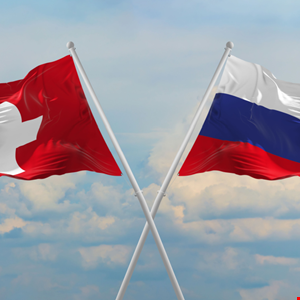- Qualcomm’s $2.4B Alphawave deal signals bold data center ambitions
- Is this the end of Intel-based Macs? Apple confirms bittersweet update policy for MacOS
- Your Apple MacBook is getting a free upgrade - here are the best MacOS 26 features
- “고객 53%에겐 독이 됐다”···가트너가 경고한 ‘수동적 개인화’ 마케팅의 역설
- Your iPad is getting a major upgrade. Here are the best features in iPadOS 26
Switzerland’s Security Report: Impact of Russia–Ukraine Conflict

The Swiss Federal Intelligence Service (FIS) released its latest situation report on Tuesday, highlighting the ongoing impact of Russia’s aggression against Ukraine on national and international security.
The report emphasized that the increasing rivalry between significant powers heavily influences Switzerland’s security.
It also showed how the decline in the effectiveness of international forums like the United Nations (UN) and the Organization for Security and Cooperation in Europe (OSCE) has contributed to a lack of a stable new world order, as Russia disrupts the rules-based order for peace in Europe.
Further, the report highlighted a trend towards a more bipolar world, with Europe and the EU continuing to rely strategically on the United States.
China is asserting itself as a pole against “the West,” diminishing Russia’s role in Chinese–Russian relations. However, uncertainties regarding the United States’ commitment to Europe could resurface if a leader like Donald Trump or another isolationist candidate assumes power in 2025.
According to the FIS, China and Russia are challenging existing institutions, rules and norms, while regional powers like Turkey, India and Saudi Arabia seek to expand their influence. In the Indo-Pacific region, Japan views China as the most significant strategic challenge. Meanwhile, competition for power between Western states, Russia and China intensifies in Africa.
The report also highlighted the ongoing relevance of violent extremism and terrorism. Social polarization and fragmentation increase the risk of violent extremism, with right-wing extremist attacks potentially becoming more frequent in Europe.
“Conflicts are polarizing,” commented Timothy Morris, chief security advisor at Tanium. “Even the side that forms a majority will disagree on how the conflict should be handled. The Swiss are taking the actions of Russia seriously and are warning others. Not to mention their recognition of the rivalry between the USA and China.”
John Anthony Smith, CEO of Conversant Group, echoed Morris’ point. He emphasized that cybersecurity professionals are responsible for implementing adequate controls, configurations and orchestration to prevent attacks.
“While it seems obvious to say that they should place special emphasis on security at this time of heightened tensions, our position is that it is always essential to put 100% effort into protecting critical infrastructure,” Smith added.
“Threat actors probe and make attack attempts virtually continuously, and the consequences of complacency could be catastrophic.”

